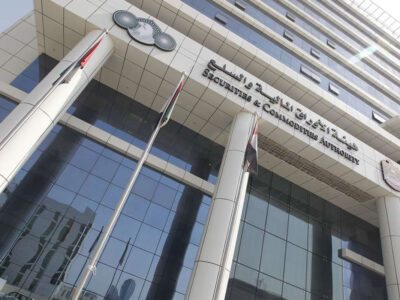The Egyptian central bank raised key interest rates by 2 percent on Thursday citing rising inflationary pressure, sending the Egyptian pound on a tail spin to hit its all time low, but cheering up the country’s stock market with a rebound in share prices.
The Monetary Policy Committee (MPC) of the Central Bank of Egypt (CBE), in an unscheduled meeting on Thursday, announced hiking the overnight lending rate by 200 basis points (two percentage points) to 14.25 percent.
It also announced a similar hike in overnight deposit rate to 13.25 percent and the main operation rate to 13.75 percent.
The central bank’s discount rate also stood revised to 13.57 percent after the hike.
The bank also announced the start of a ‘durably flexible exchange rate regime’, which will measure the Egyptian pound against other foreign currencies.
Besides, the central bank announced it would start ‘gradually’ stopping the use of letters of credit for import finance – with a December 2022 deadline to completely halt the practice.
CBE, in a statement, attributed its decision to elevated global and domestic prices that are expected to keep headline inflation above the MPC’s preannounced target of seven percent (±2 percent) on average through the fourth quarter of 2022.
“The decision aims to uphold the CBE’s mandate of ensuring price stability in the local market over the medium term. It also aims to anchor inflation projections and contain demand side pressures and higher broad money growth as well as the second round effects of supply shocks,” the statement said.
The rate hike move led to a sharp fall in the Egyptian pound, reportedly down by about 13 percent against the US dollar during Thursday’s trading hours, hitting around 23 pounds to the dollar.

According to market data, this was an all-time low for the Egyptian pound, after its fall to 19 to a dollar in 2016.
The move on the new currency exchange regime followed the Egyptian government announcing earlier this week that it would move to a flexible exchange rate regime.
Acting central bank head Hassan Abdalla said Sunday that they would start measuring the Egyptian pound against foreign currencies and gold, as opposed to the US dollar.
This is in response to the Egyptian pound performing poorly against the dollar in recent weeks, but faring better against other currencies, such as the euro.
Regarding the letters of credit, Egypt started requiring them for imports in February.
The move allowed the central bank to control the demand for foreign currency, but was seen leading to delays and increased administrative costs.

Prime Minister Mostafa Madbouly said Tuesday that Egypt would abandon the letters of credit system after an apparent outflow of $25 billion from Egypt within a month.
The CBE said the global economy faced multiple shocks and challenges, the likes of which have not been seen in years.
To face multiple economic challenges, the government has intensified a reform agenda to secure macroeconomic stability and achieve strong, sustainable and inclusive growth.
“To this end, the CBE employed a durably flexible exchange rate regime, leaving the forces of supply and demand to determine the value of the EGP against other foreign currencies,” the bank said.
The announcements on rate hike and new exchange rate mechanism saw the Egyptian stock exchange rebounding at the close of trading on Thursday on the back of investor optimism.
The market capitalisation of listed companies’ shares on the bourse increased by 25.5 billion pounds – the highest daily rise since the beginning of the year – and reached 745.8 billion pounds.








